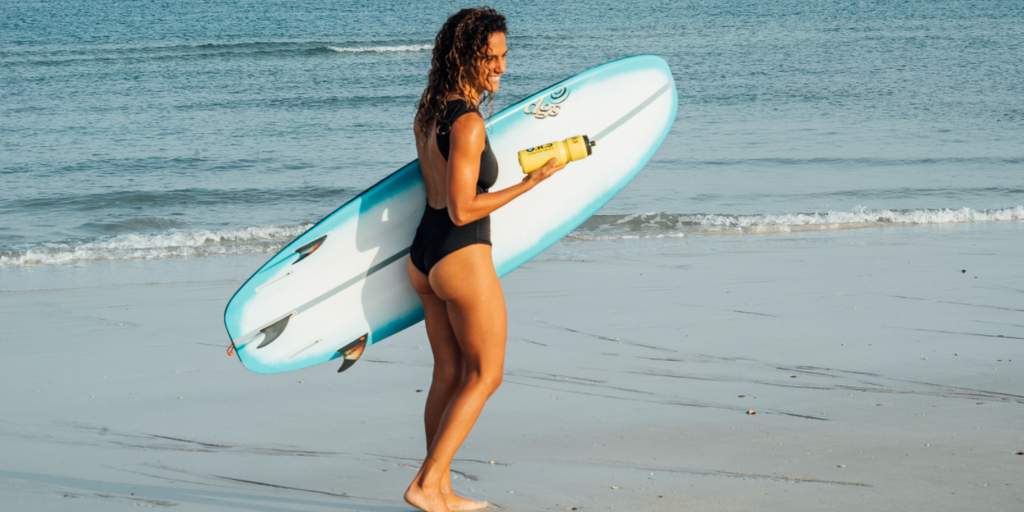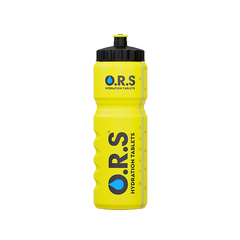HOLIDAY HYDRATION

HOW TO STAY HYDRATED WITH O.R.S
Staying hydrated whilst on holiday can prevent your trip from being ruined. Whether you’re going to coastal resort, a tropical rainforest, or a dry desert, you need to ensure that you make the most of your trip, by preventing dehydration from rearing its ugly head. It can ruin some people’s day, let alone cause serious life threatening problems. The intent of this article is to raise awareness of dehydration, and show holiday goers very simple methods to maintain hydration.
Hydration is keeping body fluids an an optimal level, whereas dehydration is when your body loses more fluids than it is acquiring. A very common process of dehydration is sweating. When you become dehydrated, your body uses water from other sources in the body, like blood, to carry on functioning. This water reserve is important, and must be replenished, otherwise complications can arise.w
Dehydration has some very common symptoms, like:
-
Feeling thirsty
-
Bad breath
-
Fatigue
-
Headaches
-
Lack of urine
-
Lack of strength
-
Lack of concentration
Understanding these signs of dehydration is important, as it’s easy to consider these symptoms are part of a different problem. Water plays a big role in our every day life, it makes up almost two thirds of the human body. Water aids in digestion, forms the base of our bodily fluids, and neutralises our bodies to become pH neutral. Water is also a rudimental ingredient of glycogen, which stores glucose in our muscles.
O.R.S Hydration Tablets are very effective at hydrating the body. The tablets provide electrolytes and minerals like potassium, glucose and salt, which power your body in ways plain drinking water, and some leading sports drinks (sugar water) do not.
O.R.S Hydration Tablets are dry tablets, which dissolve in water. While you don’t need to prepare an O.R.S solution at home, they do last for 8 hours (24 hours if refrigerated), so they are transportable if you wish to make a solution(s) at home. Of course, you always bring them with you in tablet form, and simply add them to water. The tablets dissolve on their own, and you should only need to stir if necessary, making them ideal for travel, even 36,000 feet in the air.
There is an app available for smartphones and tablets, on the App Store and Google Play, called O.R.S Hydration Calculator. This is an effective tool, which can accurately estimate how dehydrated you might get whilst performing in a particular activity, including flying. Not only can flying be a strain on the arms (as you have to carry suitcases obviously…), flying can cause you to become dehydrated, so on the O.R.S Hydration Calculator, simply choose “Flying” as the activity, and set; the hours you will be travelling for, sweat rate, body weight, and urine colour. The app will explain how many tablets you should mix, with how much water, and offer a calculated guess of how dehydrated you may be.
Staying Hydrated On A Plane
The humidity of a plane is very low, often dwelling at around 10% humidity. This is due to the intense air conditioning of the plane, which is required due to the high altitudes planes soar to. Cabins must be pressurised, in order for passengers to breathe, so the dry air on a plane is unavoidable, and the air conditioning cannot be simply turned up or down, like that in a home with an AC switch.
Dryer air can present a few problems. Those who are asthmatic should be cautious, especially whilst flying, as the lower pressure can affect your breathing. As well as this, dryer air can dry out the sinuses too, leading to dried mucus membranes; small capillaries rupture, bleed and leak nosebleeds.
Here are some flight tips to keep in mind when travelling, to maintain hydration, and make the experience as comfortable as possible:
- Drink water – It may be obvious, but drinking water is the first step to hydration. Ignore drinks that are particularly sugary, carbonated, or diuretic, like alcohol and caffeine.
- If you are asthmatic, bring an asthma pump with you and keep it handy
- When you finish using an aftershave or perfume bottle, wash it out and refill it with water to spray yourself with. This will hydrate the skin, and refresh you in the dry cabin air.
-
Taking a nasal spray (or a recycled nasal spray bottle, filled with water) with you on flight, can provide your sinuses with moisture, which can fight the chances of nosebleeds from occurring.
- Visit the water closet (WC), and wash your hands and face with cold water from the tap.
- If you don’t want to keep getting up and down, dampen a flannel whilst in the WC, and lay it over your face whilst seated.
- Eye drops can provide water into dry eyes, which helps fight dehydration, and lubricates the eyes.
- Bring skin moisturiser, and apply it to dry areas of skin.
Flights can take a long time, from sitting in your seat, to waiting it out in the sky. You might want to consider an aeroplane survival kit for hydration. We suggest bringing with you:
- A bottle of a premade O.R.S solution
- Extra supplies of O.R.S hydration tablets
- A spray bottle filled with plain water
- A flannel or small towel
- An asthma pump (if you are asthmatic)
- Nasal spray
- Eye drops
- Moisturiser
Staying Hydrated In The Humidity
Unless you’re going to the Sahara desert, the air outside the plane will most likely be much more humid than the air you’ve been sitting in on the plane. High humidity raises the body temperature, and the body produces sweat in order to cool down. Through this process, you lose fluids, minerals and electrolytes, and as explained earlier, if you don’t replace those fluids, minerals and electrolytes, you can become dehydrated.
Humidity is caused by the amount of water vapour in the air; places that are close to the equator, the coast, or close to sea level are most prone to humid conditions. It’s important to think about the climate before you go, and be prepared for dehydration, if going to a particularly dehydrating location.
Some tips to keep in mind before going on holiday, and to maintain hydration, are:
- Think about where you are going. Are you going to the beach? A rainforest? A desert? Hot areas, which are close to the sea, or receive a lot of precipitation, are prone to being very humid.
- Research the weather in advance, and take note of any weather conditions that area may be experiencing.
- Avoid alcohol, even though you are on holiday, it can be very dehydrating. If you want to drink alcoholic drinks, make sure you have a water supply handy. Avoid caffeine and carbonated drinks too.
- Stay out of the sun, as it raises your body temperature. You can’t avoid humidity, unless you go to an area with air conditioning, or circulated air.
- Avoid excessive exercise if you can
- Any of the tips for staying hydrated on a plane can be applied outside of a plane too.
Hydration packs are very useful and worth the money. They’re potentially life saving backpacks, which you can carry around with you, and have pouches to fill with water. You’re essentially wearing your water bottle; if you’re going to be doing a lot of exercise, in a hot place, which requires the use of both of your hands (like climbing, or hiking up a steep hill for example), hydration packs can be very useful. What’s better is that you can fill the reservoir in the bag with any liquid of your choice, including an O.R.S solution!

